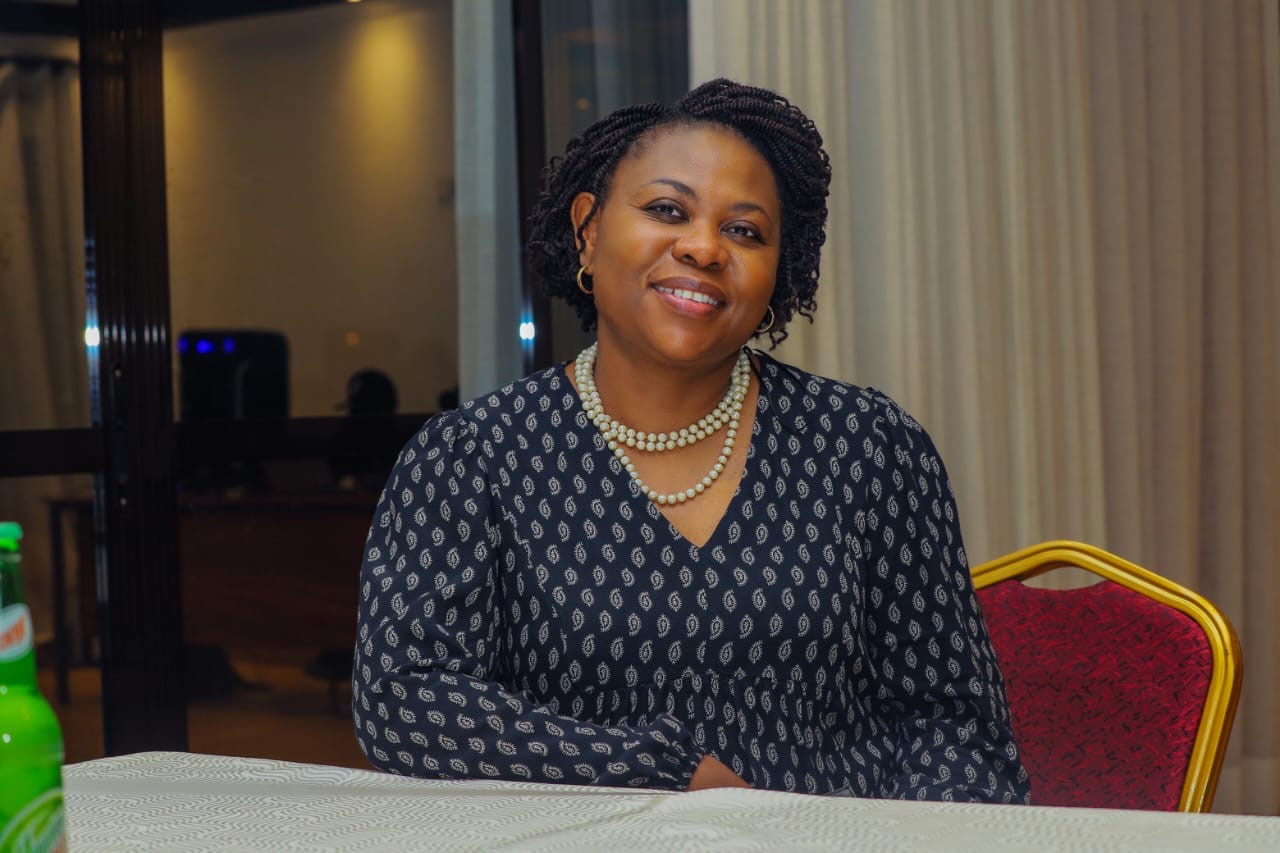By Edrisa Ssentongo.
In the heart of Kampala’s bustling Kabuli neighbourhood, a sanctuary of transformation exists where women’s lives are changed daily. Tshani Braids Salon stands as a testament to one woman’s extraordinary journey from refugee to a respected entrepreneur and philanthropist. This is the story of Nicole Tshani, whose skilled hands have woven not just intricate hairstyles, but a legacy of hope and opportunity for hundreds of vulnerable women across Uganda.
Determination and Discovery
Nicole’s story begins in 1997, when she fled the Democratic Republic of Congo with her husband and two infant children. With remarkable resilience, she turned to a skill she had developed in her home country—hair braiding—to build a new life. “When we first settled in Kampala, I had to think creatively about how to support my family,” Nicole recalls with a gentle smile. “I realized my braiding skills could become our foundation for a new beginning.”
For three years, Nicole transformed her modest living room in Kabalagala into a welcoming salon space, serving neighbours and gradually building a loyal clientele. With each braid, she refined her techniques and expanded her repertoire of styles, often studying long into the evening after her children had gone to sleep. “Those early days were filled with both challenges and discoveries,” she reflects. “I would spend hours perfecting new braiding patterns and techniques, learning what my clients loved. Each completed style was a small victory that brought us one step closer to stability.” Nicole’s dedication to her craft became her signature. “I knew that excellence was the only option,” she says. “This was not just about braiding hair—it was about creating a future for my family through the talent in my hands.”
Building a Business from Scratch
By 2007, through remarkable perseverance, Nicole had saved enough to formally register her business as “MDG Salon” (now Tshani Business Enterprise Ltd). Success was not handed to her—she walked kilometers daily to purchase hair extensions, often carrying heavy inventory balanced on her head. “During one rainy season, floodwater destroyed my entire stock,” Nicole shares. “I remember sitting on the floor, surrounded by ruined extensions, just weeping. Then I dried my tears, found suppliers who would extend credit, and started again.”
Her determination paid off when she styled the hair of a one Joyce Kabutiti – a then tailor at Bomas House in Kampala city, her satisfaction led to a flood of referrals. “That client became my walking billboard,” Nicole laughs. Today, Tshani Braids boasts over 600 loyal clients, including judges, artists, business leaders, and fellow refugees. The salon has grown to become Kampala’s longest-standing braiding business, employing over 30 women on a flexible rotation—half of whom have been part of Nicole’s extended family for more than 10 years.
The Birth of a Foundation.
In 2021, a pivotal encounter changed the trajectory of Nicole’s work forever. A pregnant South Sudanese refugee arrived at her salon, barefoot and desperate. “She did not want money—she wanted knowledge,” Nicole explains. “She begged to learn braiding so she could feed her unborn child. Something in her eyes reminded me of myself all those years ago.”
Nicole trained the woman for free, providing not just skills but materials to start her own small braiding business. This act of compassion sparked a realization: Nicole’s journey had come full circle, positioning her uniquely to understand and address the challenges refugee women face. This was the genesis of the Tshani Foundation, which has since trained 47 vulnerable women including refugees in professional hair braiding techniques. Through the Foundation’s comprehensive program, women learn not just technical skills but also business management, customer service, and professional development. “As a former refugee myself, I understand what marginalized women are going through,” Nicole says. “The Foundation feels like a full-circle moment for me and my family. We are proud to be of service to women in need.”

A Multilingual Haven of Hope.
Nicole’s training center echoes with laughter and conversation in five languages— English, French, Kiswahili, Lingala, and Luganda—all of which she speaks fluently. This linguistic versatility allows her to connect deeply with women from diverse backgrounds across East Africa. “Nicole does not just teach braiding,” says Amina, a Kamuli-raised graduate of the program. “She teaches us to turn our scars into crowns.”
The Foundation’s training curriculum goes beyond technical skills to address the whole person. Women receive trauma support, business mentorship, and ongoing community. The comprehensive program includes professional salon management, customer service, and the confidence needed to succeed in a competitive industry.
Building Gender-Inclusive Infrastructure
Understanding the unique challenges vulnerable women face, Nicole has designed her training programs with careful attention to their specific needs. The Foundation is currently fundraising for a purpose-built training facility that will include integrated childcare, nursing areas, and flexible scheduling to accommodate women’s family responsibilities.
“Traditional training facilities often exclude mothers with young children,” Nicole explains. “How can a woman focus on learning when she is worried about her baby? Our new center will remove these barriers.”
The Legacy Continues.
Today, Nicole’s once-cracked hands hold the dreams of hundreds. Her graduates have gone on to start their own small businesses, secure employment in established salons, and provide for their families with dignity and pride.
“When I see my graduates paying school fees, running their own salons, and caring for their loved ones, I remember that little room in Kabalagala,” she says, adjusting a mannequin’s braid during a training demonstration. “These braids we create, They are love letters to the women we were, and the futures we are building together.”
Nicole’s journey from refugee to entrepreneur to change maker exemplifies the profound impact one woman’s compassion can have when combined with determination and vision. Through Tshani Braids and the Tshani Foundation, she has created not just beautiful hairstyles, but a beautiful legacy of empowerment that will continue to transform lives for generations to come. As Nicole often tells her students: “Our hands are our future. With these ten fingers, you can weave not just hair, but hope, dignity, and a new beginning.




